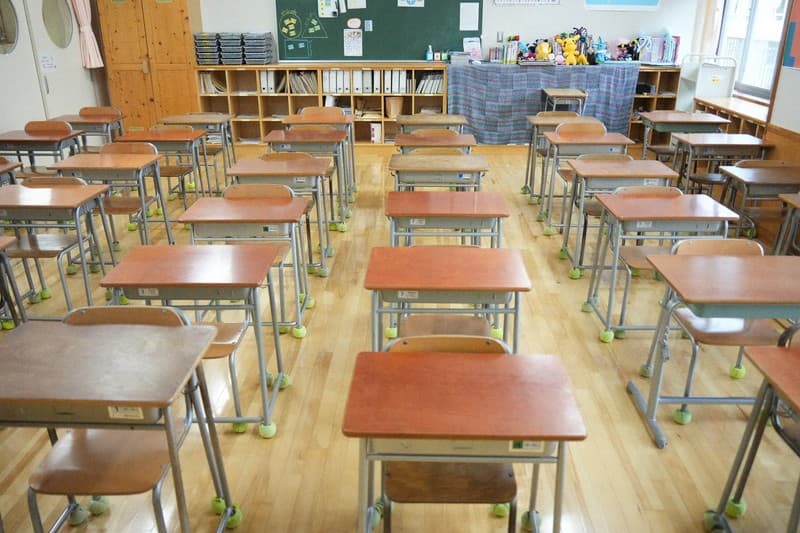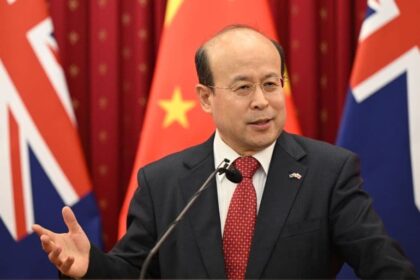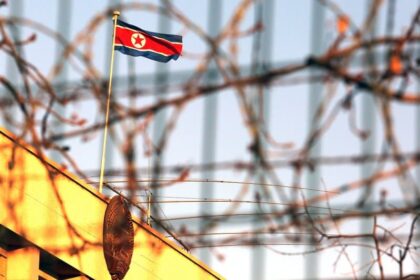Why Tokyo is drawing a line on parent harassment
Tokyo is moving to shield teachers and keep parent school communication on track after a growing number of complaints about aggressive behavior by guardians. The Tokyo Metropolitan Board of Education has drafted a detailed playbook for handling so called monster parents, a term widely used in Japan for guardians who make excessive or unreasonable demands on schools. The plan sets time limits for discussions, requires recording of conversations, and lays out a step by step escalation that can involve lawyers and, in severe cases, police.
The push follows an April survey by the board of public school teachers, where about 20 percent of roughly 12,000 respondents said they faced words or behavior outside common social standards from guardians. More than 1,000 reported an overwhelming workload and extra hours as a result. Teacher stress and staff shortages have become a national concern, and officials say clear rules are needed so educators can focus on students rather than repeated confrontations.
The protocols draw on Tokyo’s customer harassment prevention ordinance that took effect in April. That ordinance, the first of its kind in Japan, targets abusive behavior toward workers. Education officials say the same principles should apply in schools when staff face harassment from guardians. The outline will go to an expert panel in December, with formal guidelines expected by the end of the current school year. Schools run by the Tokyo Metropolitan Government are slated to begin using them from the 2026 academic year, and the guidance will be shared with municipal boards across the capital.
What do the new protocols require
The draft centers on two ideas, set clear limits and document interactions. Parent teacher meetings will be held after classes on weekdays and, as a rule, be finished within 30 minutes. If a situation requires more time, staff can extend a meeting to an hour. All conversations with guardians, whether in person or by phone, are to be recorded after parents are told in advance. Select schools will also test video recording to gauge whether cameras reduce conflict and help create an accurate record.
Step by step response to repeated harassment
The guidance lays out a graduated response so teachers do not have to face intense situations alone and so the school can keep the focus on student welfare. It also sets thresholds for when outside help is needed.
- Initial contact with a guardian is limited to scheduling a later time to talk, rather than debating issues on the spot.
- First meeting, two or more staff attend.
- Second meeting, again two or more staff attend to provide support and ensure a clear record of what is said.
- Third meeting, managerial staff take the lead.
- Fourth meeting, a psychologist and a lawyer join to support staff and stabilize the situation.
- From the fifth meeting onward, a lawyer represents the school.
- If a guardian uses abusive language, schools can assign about five staff to handle the discussion.
- If behavior continues or escalates, a security company can be called to stand by.
- Police will be notified if there is physical violence or if a guardian refuses to leave school grounds.
- Schools can request the removal of slanderous posts on social media that target teachers or staff.
The protocols also call for mental health support for educators who face harassment. School leaders are encouraged to monitor workload after incidents, check in with affected staff, and arrange counseling when needed.
Why now, and how common is parent harassment in Japan
Reports of intense parent pressure on schools are not new in Japan, but policymakers say the problem has become harder to ignore. The board’s April survey showed one in five teachers reporting behavior outside social norms from guardians. That burden sits on top of an already heavy workload. International survey data indicates teachers in Japan work more than 55 hours per week on average, among the highest in the OECD, and stress is often linked to non teaching duties. Handling complaints from parents and guardians is frequently cited as a source of pressure. Teacher sick leave for mental health reasons has also grown, putting more strain on schools with limited staff.
The term monster parents took hold in public debate in the late 2000s, after high profile cases where guardians demanded special treatment or pressured teachers over grades, club activities, or discipline. It does not refer to common disagreements or ordinary advocacy. The draft targets repeated, excessive demands that exceed social norms, such as persistent verbal abuse, threats, or slander that undermines staff and disrupts learning.
Unions and education researchers have flagged a risk that heavy non teaching duties and prolonged conflicts with guardians can drive young educators out of the profession. Surveys point to lower job satisfaction in Japan compared with many peer countries and a larger share of younger teachers considering leaving within a few years. Officials in Tokyo argue that tighter procedures can reduce friction and give staff a predictable process, which should help schools retain educators and maintain a stable learning environment.
How the rules link to customer harassment law
Tokyo’s customer harassment prevention ordinance, introduced in April, set a baseline for workplaces where staff have to deal directly with the public. It frames abusive language, intimidation, and slander as workplace harms that employers should manage. The education board’s expert panel concluded the same logic applies to schools when teachers and office staff face harassment from guardians. While schools are not retail counters, they are workplaces where staff interact with the public, and the ordinance gives officials a legal framework for setting standards.
Recording conversations is a central tool in the new protocol. In Japan, recording a conversation that you are part of is generally lawful. Schools will notify guardians in advance and explain that recordings protect both sides by creating an accurate record of what was said and when. Clear data handling rules will be needed, such as who can access recordings, how long they are kept, and how they are stored. The board also intends to test video recording at some campuses to see whether cameras help de escalate tense situations and reduce disputes over facts.
The draft covers the digital spillover of disputes as well. If a parent targets a teacher with slander online, schools can ask platforms to remove the posts. That step is meant to limit reputational harm and reduce the risk that conflicts spread beyond the school community. The document also specifies when it is time to seek outside help, from bringing in security support to contacting police if there is violence or a refusal to leave.
What it means for classroom life
For teachers, the most immediate change will be clear boundaries around time and process. Shorter, structured meetings should curb the hours spent in unresolved exchanges, and recordings will reduce disputes over who said what. Escalation to managerial staff, mental health professionals, and lawyers is designed to lift the burden from individual teachers and to make sure difficult cases are handled by people with the right training. The goal, officials say, is not to shut down communication, but to keep discussions focused on student needs without allowing harassment.
There are trade offs to watch. A more formal approach can strain relationships with parents who feel anxious or unheard. Some guardians may find recording uncomfortable, especially in sensitive cases. Families who do not speak Japanese at home, or who face disability related barriers, might need extra support to participate fully and fairly in the process. Schools will need to present the new rules in plain language, allow reasonable accommodations, and make sure the protocols do not discourage sincere concerns about a child’s learning or safety.
Safeguards for fair treatment
- Train staff in de escalation and trauma informed communication so tense exchanges do not spiral.
- Provide notices to parents in clear, accessible language and in major community languages.
- Offer interpreters and alternative formats for families who need support.
- Set retention periods and access controls for audio and video files to protect privacy.
- Establish a simple path for guardians to raise concerns about a recording or a meeting outcome.
- Prioritize cases where a child’s immediate safety or special needs are at stake, with rapid involvement of counselors or social workers.
- Ensure counseling and peer support are available to affected teachers and office staff.
If schools apply these safeguards, the new rules can serve both staff safety and parent engagement. Strong communication up front, for example by explaining why conversations are recorded and how the data is protected, can reduce resistance and help families see recordings as a fairness measure rather than a barrier.
What happens next
The board plans to refine the outline at an expert meeting in December and finalize the guidelines by the end of the school year in March 2026. Tokyo metropolitan schools will prepare to implement the rules from the 2026 academic year. Education offices are expected to brief principals, run training sessions, and set up the technical side for audio and, at trial sites, video. Municipal boards in Tokyo will receive the guidance and can adapt it for local schools.
Parents can expect schools to post notices explaining that calls and meetings may be recorded, that routine meetings will be limited to 30 minutes, and that more staff will sit in when discussions become difficult. Families should still raise concerns about learning, health, and safety. The change is that the process for addressing disputes will be clearer, and the steps for handling harassment will be predictable and transparent.
Key Points
- Tokyo’s education board drafted protocols to address harassment by monster parents.
- Meetings are set for up to 30 minutes after classes, extendable to one hour.
- All talks with guardians, in person or by phone, will be recorded after notice is given.
- Escalation moves from multiple staff to managers, then a psychologist and lawyer, and finally lawyer led handling.
- Police may be called in cases of violence or refusal to leave school grounds.
- Schools can request removal of slander on social media that targets staff.
- Mental health support for teachers is part of the plan.
- Guidelines are expected to be finalized by March 2026, with use from the 2026 academic year.












